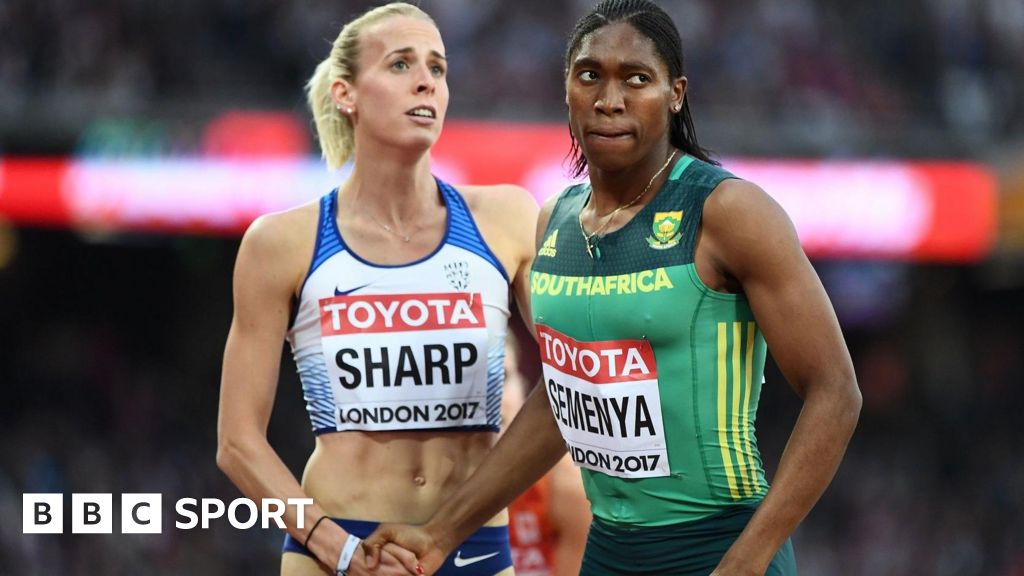[ad_1]
We’re at the Rio Olympics in 2016. Sharp has just finished sixth in the 800m final.
She’s disappointed that she’s not won a medal, but she’s just run her fastest-ever race, so it’s complicated. Plus, her grandad is dying at home, so it’s emotional, too.
The final is won by Semenya with Francine Niyonsaba of Burundi taking silver and Margaret Wambui of Kenya winning bronze.
All three medallists were athletes with certain disorders of sexual development (DSD). Under the rules as they exist now, none of them would have been allowed to race.
For Sharp, the problems started when she had to do a BBC interview directly after the final.
All season, she’d been bombarded with questions about Semenya and her right to race and she’d grown weary of dancing on the head of a pin. The questions were constant. She needed help.
Protections were put in place by way of a member of British Athletics intercepting any Semenya questions. But, with that BBC interview, Sharp was on her own.
“I remember thinking through my answer and trying to be really careful in what I said,” she recalls. “I got back to the village and people were asking me if I was OK, because there was loads of stuff on Twitter.
“I got really emotional in that interview – the culmination of four years work and not getting a medal while my grandad was dying at home. I was really sad.
“Things were taken out of context. Me crying was taken as being a sore loser. People said to me after, ‘Oh you’ve won because she’s not allowed to compete anymore’, but it was never like that, it was never me versus her. It was a really sad situation.”
[ad_2]

